Living and Dying in São Paulo: Immigrants, Health, and the Built Environment in Brazil
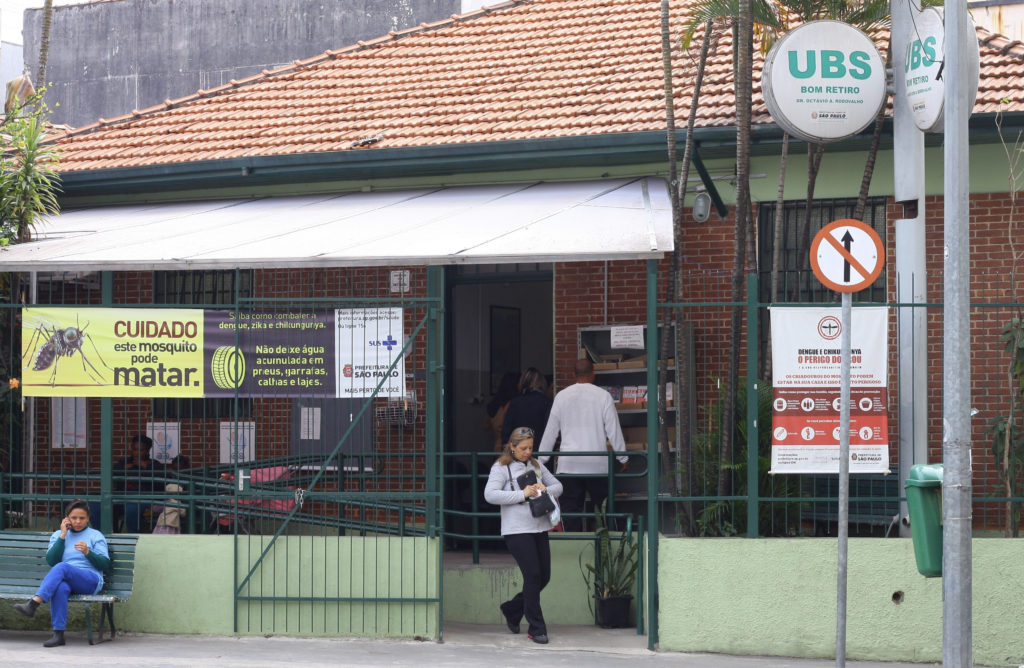
“Living and Dying in São Paulo” examines the often-competing visions of wellbeing among immigrants and representatives of the state like health professionals and policymakers. The book analyzes how rigid social structures and misattributed understandings of cause (culture) and effect (disease) often lead to enduring health issues. It treats health and care (broadly defined) as windows into the connected systems of the built environment, public health laws and practices, and citizenship. This project demonstrates how federal, state, and municipal health and immigration legislation (from about 1850 to present) engender continuity by triangulating the history of Brazilian public health research, laws and policies, and globally dominant ideas about disease and other health issues. The diverse approaches, sources, and methods explore the interactions between health, immigration, and physical structures such as workplaces and living spaces. “Living and Dying in São Paulo” asks how health is created by state-built environments ranging from health clinics and hospitals to sidewalks and streets.
“Living and Dying in São Paulo” uses a multi-ethnic neighborhood to analyze how the state and its representatives often flatten cultural differences and why immigrants, despite different historical and cultural trajectories, often generate similar responses to policies. In addition to archival and literary research, the Lesser Research Collective has been constructing an interactive cartographic platform of Bom Retiro and conducting research in the Bom Retiro Basic Health Clinic to explore long-term continuities in the relationship between health professionals and the public
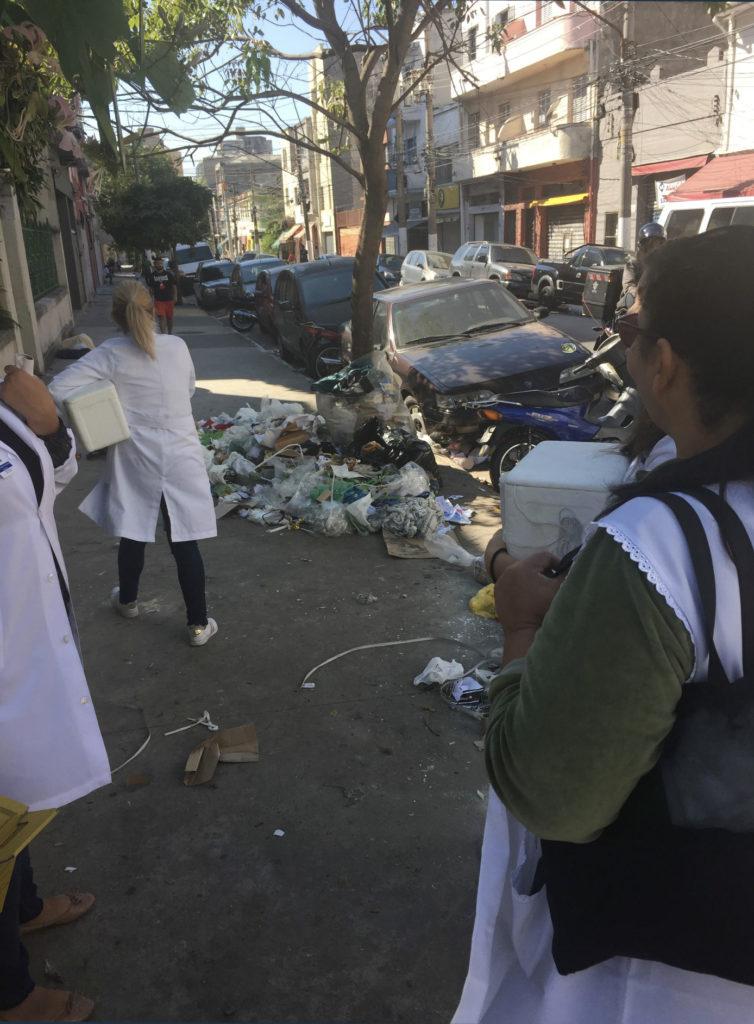
We have chosen the neighborhood-focused approach for many reasons. First, observation of the medical team allows access to buildings and inhabitants, including sweatshops, unregulated multi-family housing settlements, and formal and informal businesses. Bom Retiro also contains two important institutions related to public health and the public’s health. One is the Central Disenfectory, built in 1893 over Brazil’s first immigrant hostel (think Ellis Island), which is today operated by the São Paulo Secretary of Health as a museum/archive and as a medical warehouse. Across the street, the Public Health Clinic sits on a lot that has housed a leprosy treatment center, a pro-natalist education site for expectant mothers, and a sexual health inspectory.
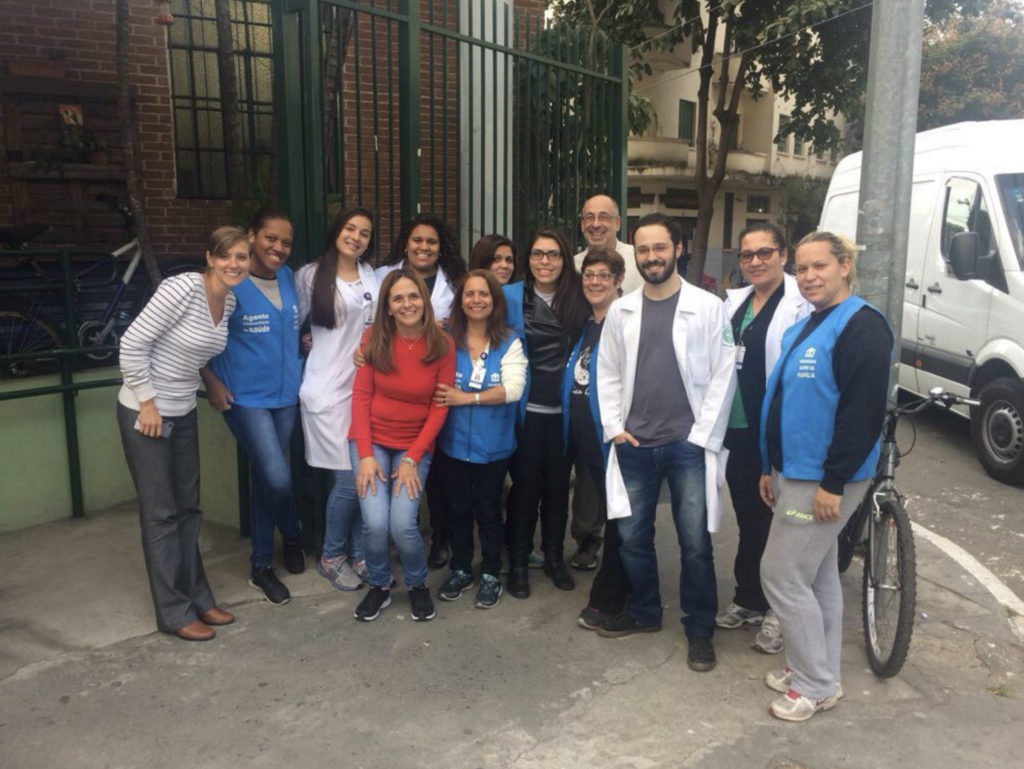
“Living and Dying in São Paulo” has been funded by a Fulbright Senior Research Fellowship, the University of São Paulo’s Institute for Advanced Study, the São Paulo State Research Foundation (FAPESP), the Emory University Research Council, and the Emory College of Arts and Sciences Interdisciplinary Faculty Fellowship.
Lesser Research Collective members Dr. Emily Pingel, Alexandra Llovet, Dr. Fernando Cosentino, and I recently published “Committing to Continuity: Primary Care Practices During COVID-19 in an Urban Brazilian Neighborhood” in Health Education & Behavior (a legally shareable, accepted version is here). Another article related to the project, that I co-authored with Dr. Uriel Kitron, is entitled “The Social Geography of Zika in Brazil” [in English in the NACLA Report on the Americas and in Portuguese in Estudos Avançados].
Many other members of the Lesser Research Collective have produces academic work:
Research Collective Academic Production
Almeida, Cintia Rodrigues de, Luanna Mendes do Nascimento, Monaliza Caetano dos Santos, Vitória Martins Fontes. “As lacunas enquanto escolha: Uma abordagem panorâmica sobre as fichas da Assistência Médica Policial de São Paulo e as mulheres do Bom Retiro presentes nessa documentação.” Unpublished manuscript.
Cikopana, Doris. “A Case Study of a São Paulo Health Clinic: Accessibility to Health Services by Patients Who Do Not Speak Portuguese as a First Language.” BA Honors Thesis, Emory University, Department of Spanish and Portuguese, 2018.
Ferla, Luis, Karine Reis Ferreira, Fernando Atique, Andrew G. Britt, Karla Donato Fook, Jeffrey Lesser, Cristiane Miyasaka, Daniela Musa, Thomas D. Rogers, and Nandamudi Vijaykumar. “Pauliceia 2.0: mapeamento colaborativo da história de São Paulo, 1870-1940.” História, Ciências, Saúde – Manguinhos 27, no. 4 (Oct-Dec 2020); 1207-1223.
Ferreira, Karine R., Luis Ferla, Gilberto R. de Queiroz, Nandamudi L. Vijaykumar, Carlos A.
Noronha, Rodrigo M. Mariano, Denis Taveira, Gabriel Sansigolo, Orlando Guarnieri, Thomas
Rogers, Jeffrey Lesser, Michael Page, Fernando Atique, Daniela Musa, Janaina Y. Santos, Diego S. Morais, Cristiane R. Miyasaka, Cintia R. de Almeida, Luanna G. M. do Nascimento, Jaine A. Diniz, and Monaliza C. dos Santos. “A Platform for Collaborative Historical Research based on Volunteered Geographical Information.” Journal of Information and Data Management 9 no. 3 (December 2018): 291–304. https://periodicos.ufmg.br/index.php/jidm/article/view/426
Fook, Karla Donato, Daniela Leal Musa, Nandamudi Vijaykumar, Rodrigo M. Mariano, Gabriel dos Reis Morais, Raphael Augusto O. Silva, Gabriel Sansigolo, Luciana Rebelo, Luís Antônio Coelho Ferla, Cintia Almeida, Luanna Nascimento, Vitória Martins Fontes da Silva, Monaliza Caetano dos Santos, Aracele Torres, Ângela Pereira, Fernando Atique, Jeffrey Lesser, Thomas D. Roger, Andrew G. Britt, Rafael Laguardia, Ana Maria Alves Barbour, Orlando Guarnier Farias, Ariana Marco, Caróu Dickinson, and Tamires P. Camargo. “Collaborative Historical Platform for Historians: Extended Functionalities in Pauliceia 2.0.” Proceedings of the 17th International Conference on Web Information Systems and Technologies (SCITEPRESS – Science and Technology Publications 2021), 460-466. https://www.scitepress.org/Papers/2021/107134/107134.pdf
Gozalez, Daniella. “Defining Family Planning in a São Paulo Clinic: Healthcare Providers and Patients’ Varied Conceptualizations of “Planned” and “Unplanned” Pregnancies.” BA Honors Thesis, Emory University, Department of Spanish and Portuguese, 2018.
Jin, Sabrina. “New Perspectives on Race and Racism Among Brazilians of Asian Descent.” BA Honors Thesis, Emory University, Department of Anthropology, 2022.
Kauko, Sara. “Criollo Entrepreneurialism: Transforming racial and class identities and social mobility among mixed-race Argentines.” Doctoral Thesis. Emory University, Department of Anthropology, 2020.
LaCroix, Delphine, Juliana Casagrande, and Jeffrey Lesser. “A Sacred Space of Health.” 25th International Congress of History of Science and Technology. Rio de Janeiro, 2017.
Llovet, Alexandra. “Stigma Continuity of Leprosy in Brazil, 1924-2018.” BA Honors Thesis, Emory University, Department of Spanish and Portuguese, 2018.
Miller, Savannah. “A Qualitative Assessment of Water, Sanitation, and Hygiene in an Urban Working-Class Neighborhood of São Paulo, Brazil.” MPH Thesis, Emory University, Rollins School of Public Health, 2022.
Pingel, Emily S. “Seeing Inside: How Stigma and Recognition Shape Community Health Worker Home Visits in São Paulo, Brazil.” Community Health Equity Research & Policy 0, no. 0 (2022). doi:10.1177/2752535X221137384
Pingel, Emily S. “Immigrants, migrants, and Paulistanos: Racialized geographies of labor and health in São Paulo, Brazil.” SSM-Qualitative Research in Health 2, no. 100074 (December 2022): 1-8.
Pingel, Emily S. “Primary Care and the Reproduction of Health Inequity in a Central São Paulo Neighborhood.” DXoctoral Thesis. Emory University, Department of Sociology, 2021.
Pingel, Emily, Alexandra Caridad Llovet, and Fernando Cosentino. “Committing to Continuity: Primary Care Practices during COVID-19 in an Urban Brazilian Neighborhood.” Health, Education and Behavior 48, no. 1 (December 2020): 1-5. doi:10.1177/1090198120979609.
Santos, Fabio Alexandre dos, Fernando Atique, Janes Jorge, Luis Ferla, Diego de Souza Morais, Janaina Yamamoto, Maíra Rosin, Ana Carolina Nunes Rocha, Nathalia Burato Nascimento, Orlando Guamier Cardin Farias, Wesley Alves de Moura, Thássia Andrade Moro, and Amanda de Lima Moraes. “A enchente de 1929 na cidade de São Paulo: memória, história e novas abordagens de pesquisa. Revista do Arquivo Geral da Cidade do Rio de Janeiro 8 (2014): 149 – 166, 2014. http://www.rio.rj.gov.br/dlstatic/10112/4204432/4133801/revista_agcrj_oito.pdf
Shrivastava, Surbhi. “Stratified surgical births: Disparities in cesarean section births in São Paulo, Brazil.” Paper presentation at the Population Association of America (PAA) Annual Meeting, Atlanta, USA, 2022.
Shrivastava, Surbhi & Heeju Sohn. “Extricating Individual and Contextual Sources of Racial/Ethnic Disparities in C-Sections in Brazil: A decomposition analysis of live births from 2019” Poster presentation at the AcademyHealth Annual Research Meeting, Seattle, USA, 2023.
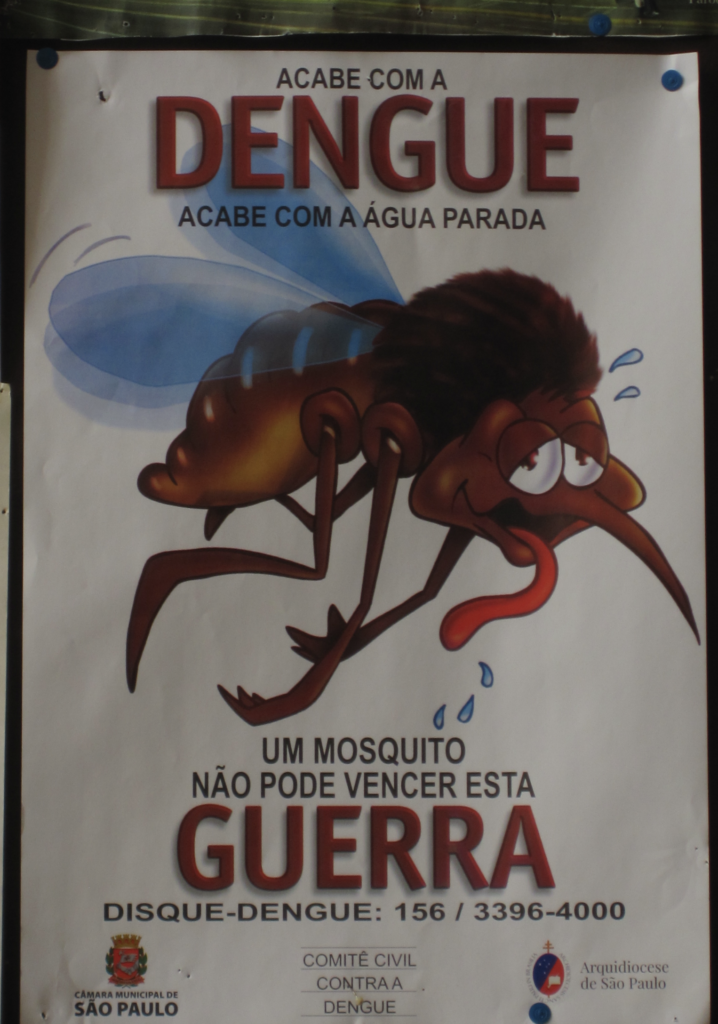
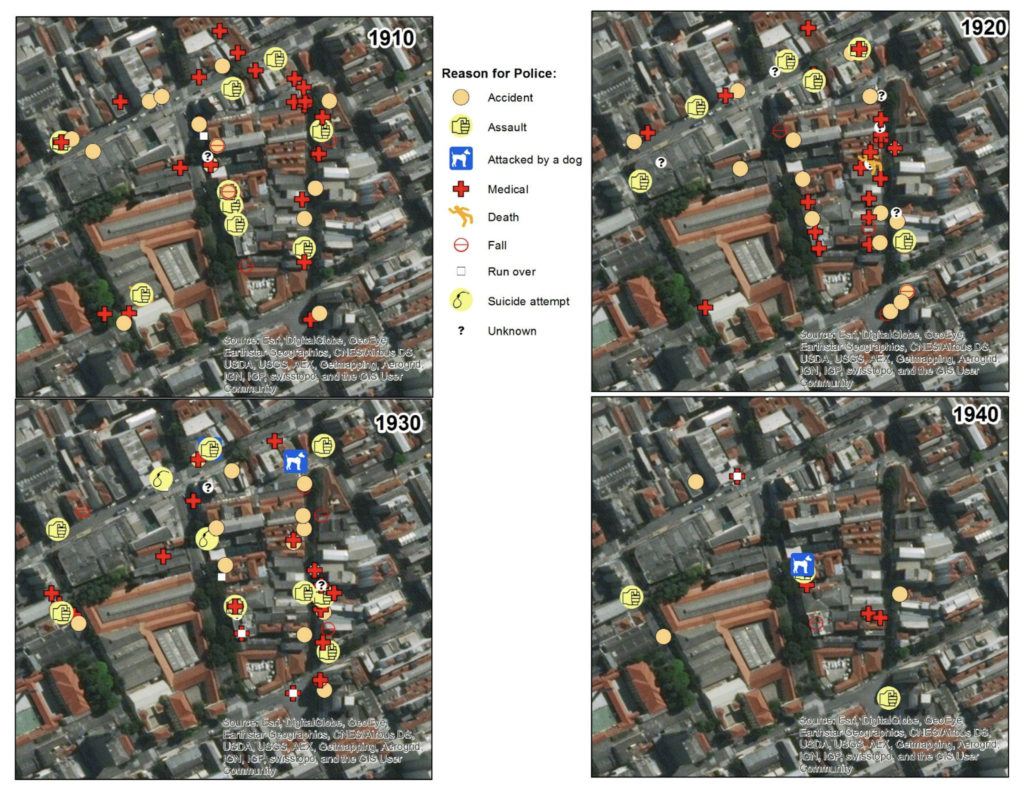


You must be logged in to post a comment.